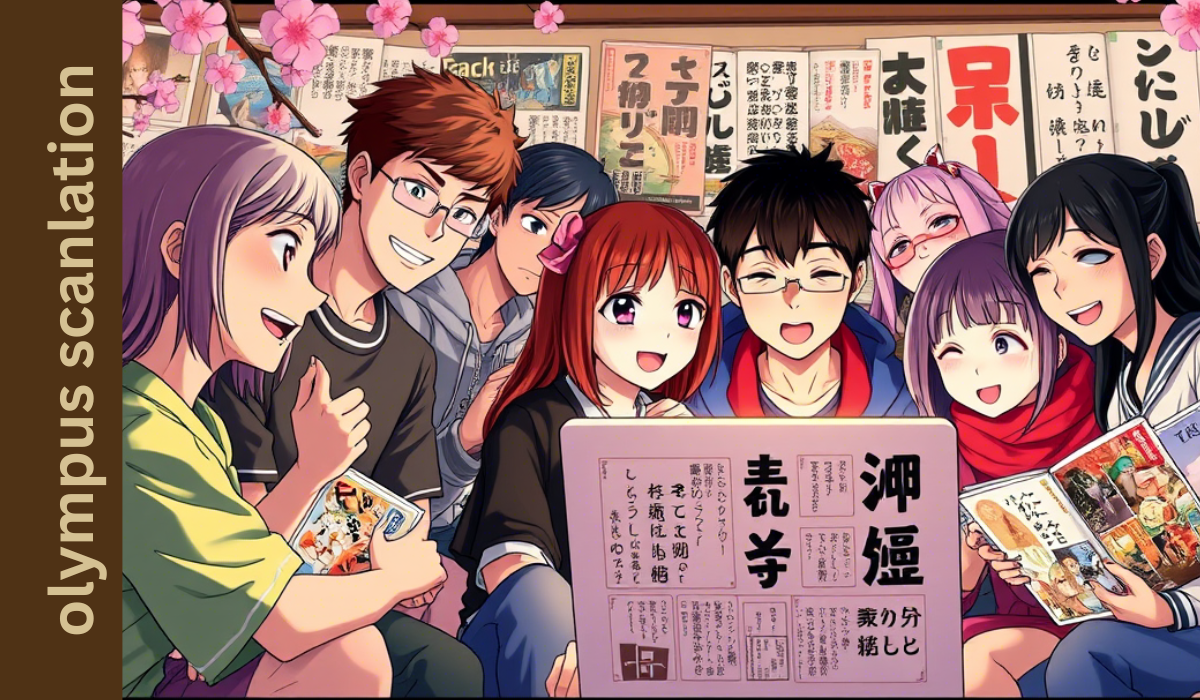Introduction
If you’ve ever read a manga online before its official English release, chances are you’ve encountered Olympus Scanlation—a name whispered in forums and praised by fans worldwide. But what exactly is scanlation, and why does Olympus Scanlation stand out in this underground yet vital community?
This article dives deep into the world of fan-driven manga translations, exploring the history, ethics, and impact of groups like Olympus Scanlation. Whether you’re a manga enthusiast or just curious about how unofficial translations work, this is your ultimate guide.
What is Scanlation?
Before we focus on Olympus Scanlation, let’s break down what scanlation actually means. The term combines “scan” (digitizing printed manga) and “translation” (converting Japanese text to another language).
How Scanlation Works:
-
Scanning – Physical manga copies are scanned page by page.
-
Cleaning – Original Japanese text is removed.
-
Translating – The dialogue is translated into the target language.
-
Typesetting – New text is inserted while preserving the original art style.
-
Quality Check – Editors ensure accuracy and readability.
-
Release – The final version is shared online.
Unlike official translations (which take months or years), scanlations often appear within days of a manga’s Japanese release. This speed makes them incredibly popular—but also controversial.
Olympus Scanlation: Who Are They?
Among the many scanlation groups, Olympus Scanlation has earned a reputation for:
✔ High-quality translations (fewer errors than most fan groups)
✔ Fast turnaround times (sometimes within 24 hours!)
✔ Focus on lesser-known manga (giving exposure to hidden gems)
Why Do They Do It?
Most scanlators, including Olympus Scanlation, operate out of pure passion. They:
-
Love manga and want to share it globally.
-
Fill gaps left by slow or nonexistent official translations.
-
Build communities where fans discuss and appreciate works together.
However, their work exists in a legal gray area—more on that later.
The Impact of Olympus Scanlation
1. Helping Manga Gain International Fans
Many series owe their global popularity to scanlators. For example:
-
“Solo Leveling” (originally a Korean webtoon) blew up thanks to fan translations.
-
“Kingdom” (a historical epic) gained Western fans years before official releases.
Olympus Scanlation has similarly introduced obscure titles to wider audiences.
2. Pressuring Publishers to Localize Faster
When scanlations trend, publishers notice. Some series (“Attack on Titan,” “Chainsaw Man”) got official translations because fan demand proved profitability.
3. Keeping “Dead” Series Alive
If a manga gets canceled in Japan, official translations often stop. Scanlators like Olympus keep these stories alive for devoted fans.
The Legal and Ethical Debate
The Problem with Scanlation:
-
Copyright infringement – Publishers lose sales.
-
Quality control issues – Some groups mistranslate or edit poorly.
-
Exploitation – A few bad actors monetize scanlations illegally.
Why Fans Defend It:
-
No alternatives – Many manga never get official translations.
-
Speed – Fans don’t want to wait years for legal releases.
-
Accessibility – Not everyone can afford paid subscriptions.
Olympus Scanlation’s Stance:
They avoid monetization and often take down works once licensed—showing respect for creators.
The Future of Scanlation
With legal platforms like Manga Plus and Viz speeding up releases, scanlation’s role is changing. However:
-
Niche manga still rely on fan translations.
-
Some fans prefer scanlations due to translation style differences.
Groups like Olympus Scanlation may evolve—perhaps into official partners (as some former scanlators have).
Conclusion
Olympus Scanlation represents the best of fan culture—dedicated, skilled, and deeply passionate. While the ethics of scanlation remain debated, their contribution to manga’s global spread is undeniable.
What do you think?
-
Should scanlation be tolerated if it helps manga grow?
-
Or should fans always wait for official releases?
You May Also Like:





